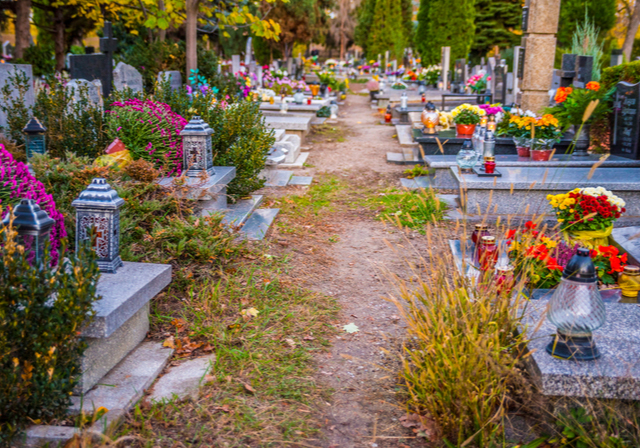
The Future Of The Funeral Industry Moving Past Traditional Funeral and Burial Services
Funeral services have been around as long as man has. They give family members the ability to have the space and time to grieve, process and pay respects for their lost loved ones. While the funeral industry boomed into a multi-billion industry, traditional funerals are not eco-friendly or wallet friendly which has caused people to turn to alternatives to the traditional funeral and burial processes.
According to NFDA, in 2010 the percentage of traditional funerals was 53.3% while cremation was well below at 40.4%. By 2015, we saw a huge jump in the number of cremations with a percentage of 47.9% while traditional funerals fell to 45.2%. Impressively it is projected that by 2025 cremation rates will be 63.3% while traditional funerals fall to 30.9%.
With these numbers in mind, there are plenty of factors why people are moving away from traditional funerals, the main reason being the cost. Funerals are expensive and the industry and price grow steadily every year, making them difficult for some families to afford. Below is a chart that compares the basic expenses included and total cost in a traditional funeral versus a cremation.
Traditional Funeral Expenses
- Embalming Process
- Visitation and Memorial Services
- Burial Plot Cost
- Gravesite Expenses
- Casket Price
- Vault or Coffin Container
- Funeral Home Basic Fee
- Facilities and Staff to Manage Viewing
- Facilities and Staff to Manage Ceremony
- Transportation Fees (hearse, service car, transporting to and from funeral home)
- Cost of opening the ground, placing remains in the ground and actual burial
Average Total Cost: $9,000+
Cremation Expenses
- Basic service Fees
- Cremation Fee
- Transportation Fees
- Cremation Casket
- Urn
Optional Expenses For Viewing/Memorial Services:
- Embalming Process
- Visitation and Memorial Services
- Funeral Home Basic Fee
- Facilities and Staff to Manage Viewing
- Facilities and Staff to Manage Ceremony
Average Total Cost: $800-$3,000
While a traditional funeral offers plenty of services, cremations, even if they include viewing/memorial services, are still regularly a third of the price of traditional funerals making them a more affordable option. While losing a loved one is tragic and celebrating their life is important, families can end up going into debt and add unnecessary extra stress over simply trying to afford the outlandish cost that is involved in a traditional funeral.
Other Notable Funeral Industry Trends
Virtual Funerals
Integrating Technology
Body Donation
At-Home Funerals
Creative Alternatives to Cremation
While cremation services’ popularity grows, so do the creative alternatives to a typical cremation urn or scattering. Families can opt to use cremated remains to do a space burial, tree planting burial, sea burial and can even be incorporated into fireworks. Cremated remains can also be made into ever-lasting gifts such as memory diamonds, memory glass, parting stones, one-of-a-kind paintings, and vinyl records. Other alternatives to actual cremation include:
- Aquamation – the process of being “bathed” in water which helps speed up the deterioration process in place of typical cremation processes that use fire.
- Promession – this is the process where a body is transformed into fertilizer. The process starts by freezing a body in liquid nitrogen then turning into a powder. This eco-friendly burial method helps give back to the earth by helping plant life grow with a nutrient-rich fertilizer.
- Dissolution – a strong chemical process that is quick and efficient at rapidly breaking down a body. The body immediately dissolves and there are no remains that can be returned to family members.
- Resomation – this eco-friendly burial method decomposes a body using alkali and water based solutions that are under high pressure that breaks the body to liquid and bone to ash. The remains can be recycled into a garden or collected in a traditional urn.
Choosing how to grieve the loss of a loved one is a personal option for families to decide for themselves. While the traditional funeral and burial always have the appeal of bringing everyone together and offering a place to visit and pay respect to loved ones, the number of alternatives is growing every year. The funeral industry regularly sees more personalized, cost effective, eco-friendly, and intimate ways to celebrate the life of a passed loved one being introduced.



